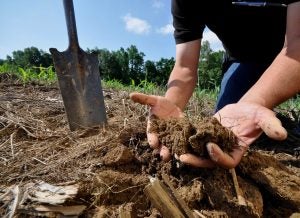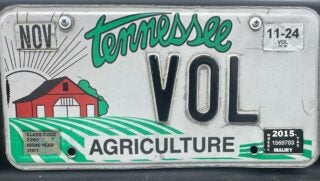Farming is an ever-adapting environment. We closely monitor our prices, costs, taxes, and regulatory issues. While we consider these things weekly, so much of what impacts us on our farms comes from outside the farm gate.
Farm Bureau has been around for more than 100 years, advocating for fair prices, controlled costs such as a reliable workforce and for taxes and regulation that does not only not put family farms out of business, but allows them to thrive. But just like everyone else, we can do better — both Farm Bureau and us, the farmers.
Consumers want to know more about their food — more than its environmental impact. People want to know if it is holistically good for families and does it improve the environment?
Recently, Chief Executive Officer of Center for Food Integrity Charlie Arnot, stated in an article, “Consumer perspective has morphed into, ‘What’s in the environment that could harm me or my family? If it is better for me and my family, it must be better for the planet.’”
The term “sustainable” is used in many instances, especially when it comes to consumer perspectives. Sustainability means a lot of things to many people. Some view it as a gateway word to more regulation and requirements. Some view it as an opportunity and a way to differentiate themselves from others. Sustainability is not a point in time, rather it is a continuous improvement and whether you realize it or not, we are continuously thinking about this as farmers.

There is no doubt that farmers have been sustainable for generations in a variety of ways. Food production takes natural resources, but sustainable food production lessens the need for those precious resources. Farming practices have continually lowered our impact on resources by improving soil health and water. Farmers are good at implementing strategies that work. Research done by the University of Wisconsin, UW-Discovery Farms, and volunteer watershed groups helps show the science behind many of the strategies.
But we can always do more. We can do something to lower our impact on the environment. Farmers are only a small part of the total impact, but farmers will be a part of creating a better tomorrow for our children. Our story does not start today. We’ve been creating our story of stewardship for generations and have to keep sharing it and get even better at embracing and implementing it.
Now, telling our story as farmers is as important as ever. We must engage consumers and explain that we have shared values in regard to our animals and the environment. We cannot allow activist groups or the retail sector to regulate farmers out of business for their own agendas.
I am proud to say Farm Bureau has not only helped many farmers tell their stories and engage others, but we have also started the engagement on this topic in different ways.
Wisconsin Farm Bureau has hired a new director of sustainability outreach and partnerships. I’m excited that we can leverage staff resources to help carry out the sustainability message in a proactive way for our hard-working farmers.
WFBF is making a strong effort to be more strategic and proactive in the areas of sustainability and environmental stewardship. I believe this is the start of something powerful, and I’m glad our members can lead the way.
This article was written by Kevin Krentz, who was elected to the Wisconsin Farm Bureau Federation Board of Directors in 2012. In December of 2020, Krentz was elected as president of the Wisconsin Farm Bureau Federation. Krentz and his family own a dairy farm in Berlin.


